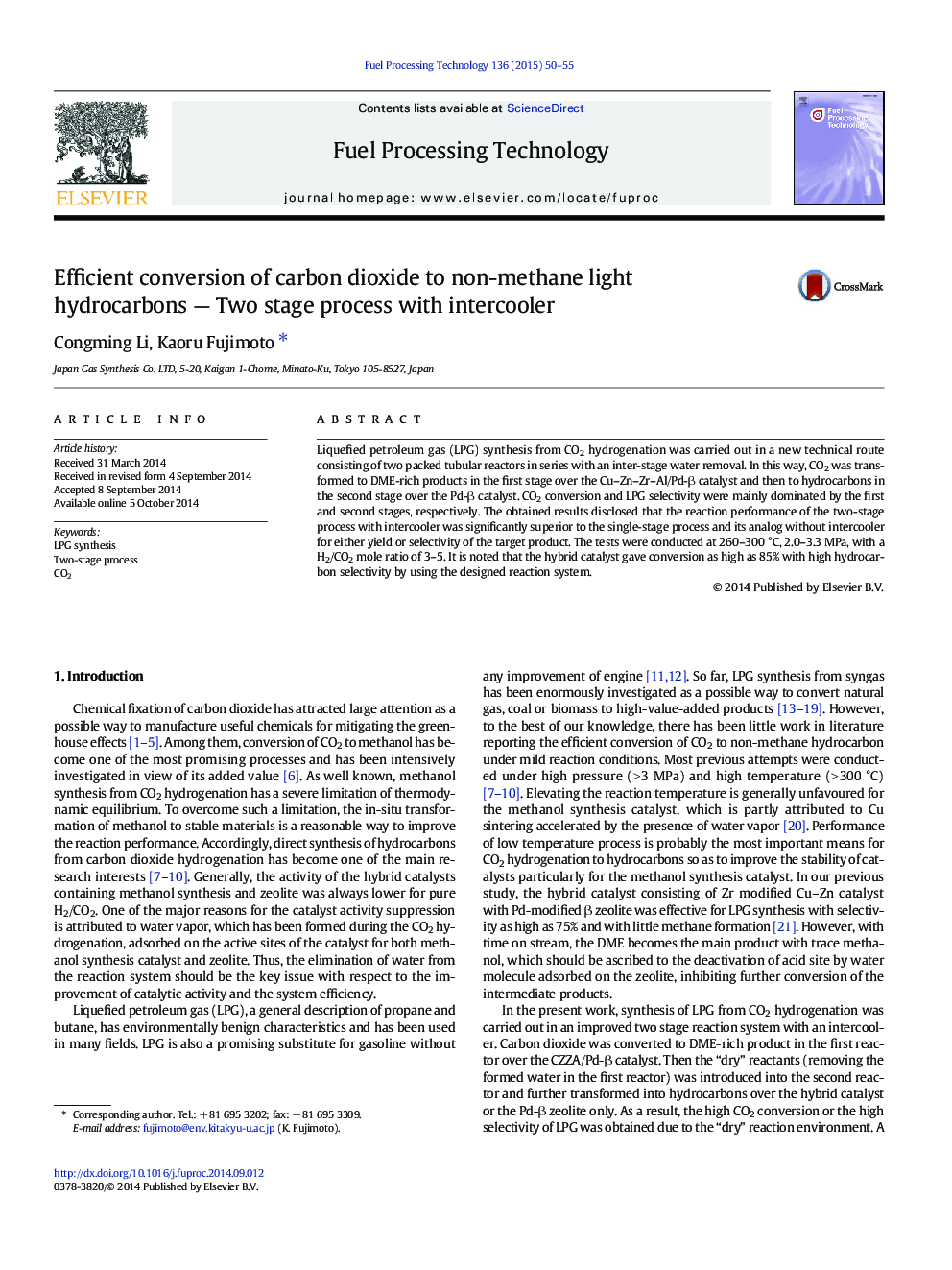| Article ID | Journal | Published Year | Pages | File Type |
|---|---|---|---|---|
| 209574 | Fuel Processing Technology | 2015 | 6 Pages |
•Improved two-stage process was effective for LPG synthesis from CO2.•High LPG selectivity could be obtained.•The catalyst had good stability over a 100 h period operation.
Liquefied petroleum gas (LPG) synthesis from CO2 hydrogenation was carried out in a new technical route consisting of two packed tubular reactors in series with an inter-stage water removal. In this way, CO2 was transformed to DME-rich products in the first stage over the Cu–Zn–Zr–Al/Pd-β catalyst and then to hydrocarbons in the second stage over the Pd-β catalyst. CO2 conversion and LPG selectivity were mainly dominated by the first and second stages, respectively. The obtained results disclosed that the reaction performance of the two-stage process with intercooler was significantly superior to the single-stage process and its analog without intercooler for either yield or selectivity of the target product. The tests were conducted at 260–300 °C, 2.0–3.3 MPa, with a H2/CO2 mole ratio of 3–5. It is noted that the hybrid catalyst gave conversion as high as 85% with high hydrocarbon selectivity by using the designed reaction system.
Graphical abstractFigure optionsDownload full-size imageDownload as PowerPoint slide
